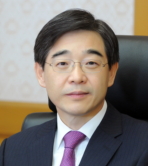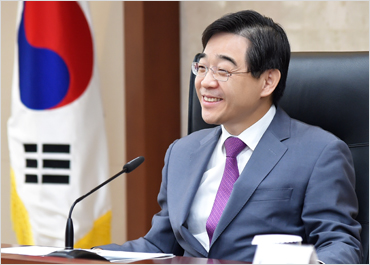
KWON Soon Il
The Honorable KWON Soon Il received an LL.B. from Seoul National University (SNU), College of Law (1981), an LL.M. from Columbia Law School (1992), and a Ph.D. in Law from SNU. He also studied at Berkeley Law School as a Visiting Scholar (2002) and conducted research at the Federal Judicial Center in the US as a Judicial Fellow (1998).
He started his judgeship at Seoul Criminal District Court in 1985. While sitting on the Seoul Administrative Court as a presiding judge (2004- 2005), he interpreted the provisions of the Official Information Disclosure Act more broadly so that people can easily get access to information held by government entities, consistent with his belief that public participation and deliberation are indispensable to representative democracy. Such efforts were well manifested through his opinions on cases regarding disclosure requests made by a tenant of public housing for information on construction cost, and by a civic group for the list of medical clinics with higher rate of antibiotics prescriptions.
He has a reputation for his dedication to the protection of the less-privileged groups of the society. In a well-known case regarding the scope of the Labor Standards Act, he decided that part-time lecturers at private universities should be treated as ¡°workers¡± as defined in the Act. In cases regarding the Workers¡¯ Compensation Act, he also wrote opinions that administrative agencies shall meet higher standards for safety and health in the workplace.
While serving as Chief of Planning and Coordination Office of the National Court Administration (NCA) and Vice Minister of the NCA consecutively from 2011 to 2013, he endeavored to launch a new personnel system aimed at recruiting judges among the experienced legal professionals and took the lead in the establishment of Judicial Policy Research Institute.
He was appointed as a Justice of the Supreme Court in 2014. In a landmark case regarding undocumented migrant workers¡¯ right to form a trade union (2015), he wrote the majority opinion that foreign laborers, regardless of their visa status, are entitled to file trade union registration with the Labor Office. In a controversial case regarding contingent fees for criminal defense attorneys (2015), he wrote the unanimous opinion that so-called ¡°success fee¡± agreement shall be considered null and void. More recently, Justice Kwon ruled that when evaluating the probative value of testimony made by a victim of sexual assault, the court shall consider the unique circumstances a victim is in, and keep gender sensitivity in mind so as to understand the issue of ¡°secondary victimization¡± in the context of the very case at hand and to achieve gender equality (2018). In another recent landmark Supreme Court case on conscientious objection, he joined the majority opinion which ruled that refusing to fulfill the military duty based on a religious faith which forbids bearing arms is considered a justifiable reason, and therefore it cannot be criminally punished.
Justice Kwon actively participates in major international conferences. At the 15th Asian Law Institute Conference held in Seoul in May 2018, he delivered a keynote speech titled ¡°Revisiting the Rule of Law Literature from a Korean Perspective: Advancements, Setbacks, and Challenges.¡± More recently, he made a presentation on the subject of the ¡®Judicial Reform in Korea¡¯ at the J20 Conference held in Argentina in October 2018.
He authored ¡°Theories of Securities Professionals' Duty to Protect Customers and Duty of Care Regarding Investment Recommendations¡± and a number of articles on major issues that arise in the fields of public, civil and comparative laws.
Justice Kwon is currently serving as Chairperson of the National Election Commission since December, 2017.


